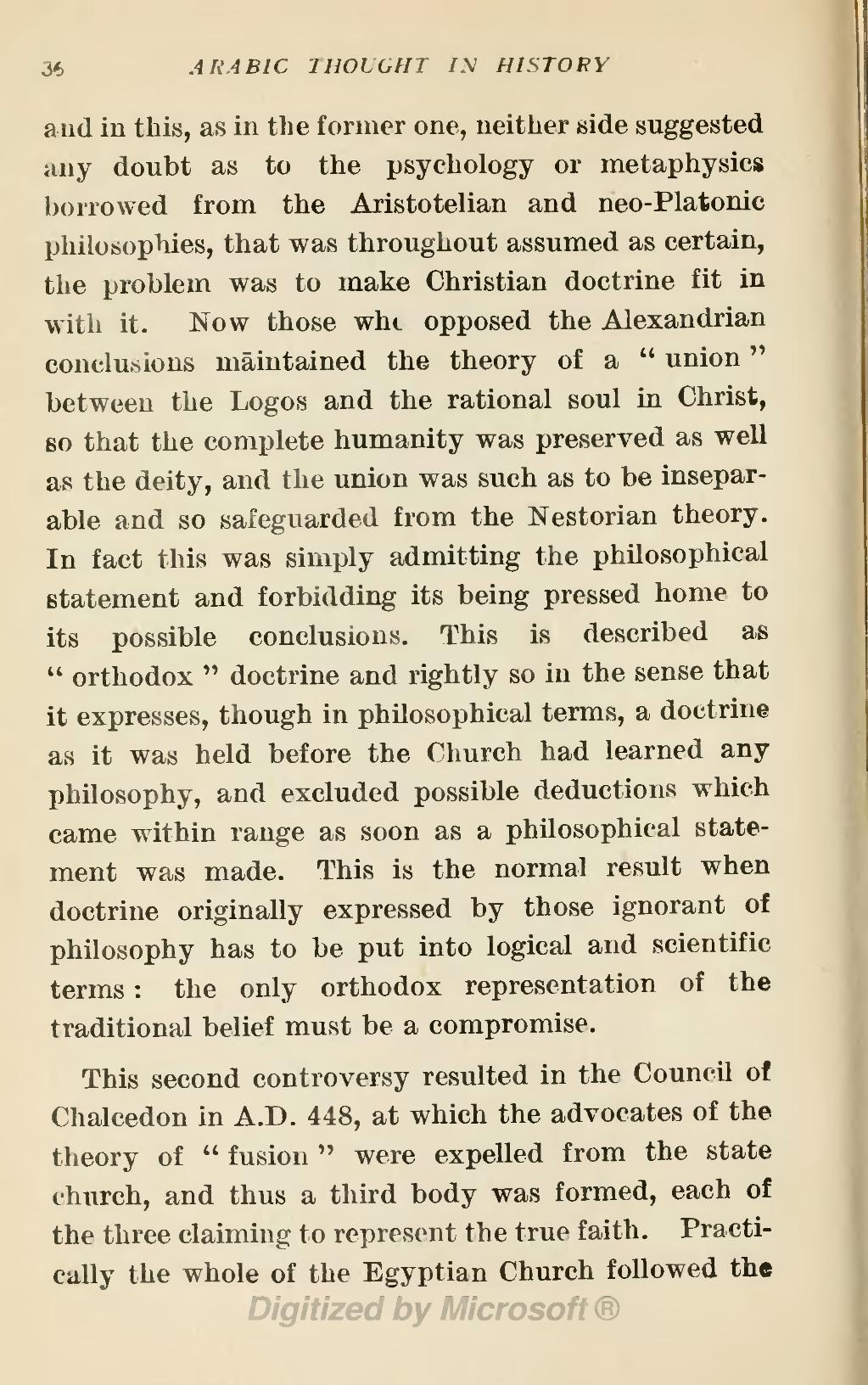and in this, as in the former one, neither side suggested any doubt as to the psychology or metaphysics borrowed from the Aristotelian and neo-Platonic philosophies, that was throughout assumed as certain, the problem was to make Christian doctrine fit in with it. Now those who opposed the Alexandrian conclusions maintained the theory of a "union" between the Logos and the rational soul in Christ, so that the complete humanity was preserved as well as the deity, and the union was such as to be inseparable and so safeguarded from the Nestorian theory. In fact this was simply admitting the philosophical statement and forbidding its being pressed home to its possible conclusions. This is described as "orthodox" doctrine and rightly so in the sense that it expresses, though in philosophical terms, a doctrine as it was held before the Church had learned any philosophy, and excluded possible deductions which came within range as soon as a philosophical statement was made. This is the normal result when doctrine originally expressed by those ignorant of philosophy has to be put into logical and scientific terms: the only orthodox representation of the traditional belief must be a compromise.
This second controversy resulted in the Council of Chalcedon in A.D. 448, at which the advocates of the theory of "fusion" were expelled from the state church, and thus a third body was formed, each of the three claiming to represent the true faith. Practically the whole of the Egyptian Church followed the
